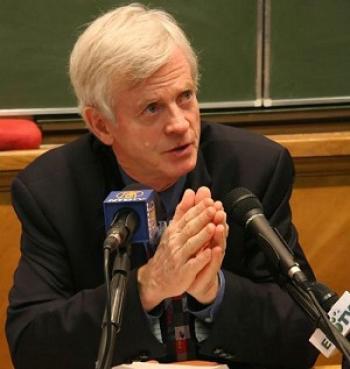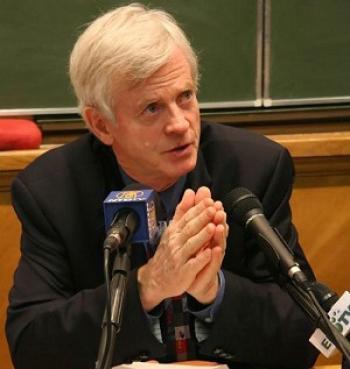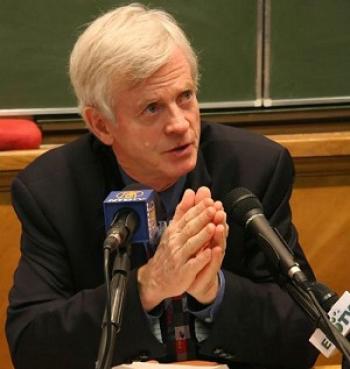Presentation by Hon David Kilgour at University of Ottawa Canada
The following are excerpts from a speech by David Kilgour at the University of Ottawa, Brooks Building on Feb. 26, 2010. His comments focused on various issues in China including missing Chinese lawyer Gao Zhisheng, environmental pollution, the economy, killing of Falun Gong for organ transplants, and suggestions on doing trade with China.
About Missing Chinese Lawyer Gao Zhisheng
Permit me to speak first of Gao Zhisheng, who I understand was recently nominated for the 2010 Nobel Peace Prize by a number of qualified persons in Canada, Europe, and the United States. He is also the lawyer who in 2006 invited David Matas and myself to come to China to investigate whether allegations of organ pillaging from Falun Gong were true. While unable to attend university because of family poverty, he managed to pass the bar exams and in 2001 was named one of the country’s top ten lawyers by China’s ministry of Justice.







